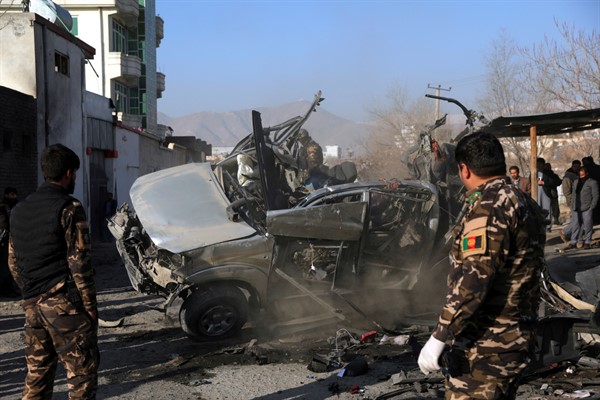Afghanistan may not rank in the top tier of U.S. President Joe Biden’s policy priorities, given the host of pressing crises in the United States. But Afghanistan’s fate hinges in large part on how the Biden team decides to approach the country’s conflict and its tenuous, still-nascent peace process. Biden will be compelled to make critical decisions on Afghanistan during his first months in office that will affect the country’s conflict—and relationship with the U.S.—for years to come.
Over the past year, the outgoing U.S. administration attempted to set a peace process in motion by signing a political agreement with the Taliban in February 2020, exchanging a commitment to withdraw international military forces for assurances the insurgent group would address transnational terrorism concerns, enter peace talks with the Afghan government, and work toward a cease-fire and political roadmap to end the war, among other things. That agreement triggered a range of initial responses ranging from early expressions of hope among Afghans to revulsion among many who read its terms as overly concessionary to the insurgents. That skepticism soon became a growing chorus of pessimism, as the Taliban re-intensified violence across the country and the Afghan government resisted meeting obligations the U.S. had unilaterally committed it to.
Negotiations between the two sides eventually began in September, six months behind the schedule American diplomats had anticipated. From the outset, the pending U.S. presidential election in November loomed over the process, and it continued to exercise an intangible yet palpable influence over the pace of talks long after votes were tallied, due to the most disorderly transition of power in Washington in over a century. It took three months for the two Afghan sides to settle on procedures and points of protocol meant to govern the talks, after which they broke for nearly a month. This pause allowed negotiators to consult with their respective leadership, but it also seemed to be an acknowledgement of how much the process might change, depending on the United States’ new political leadership.

